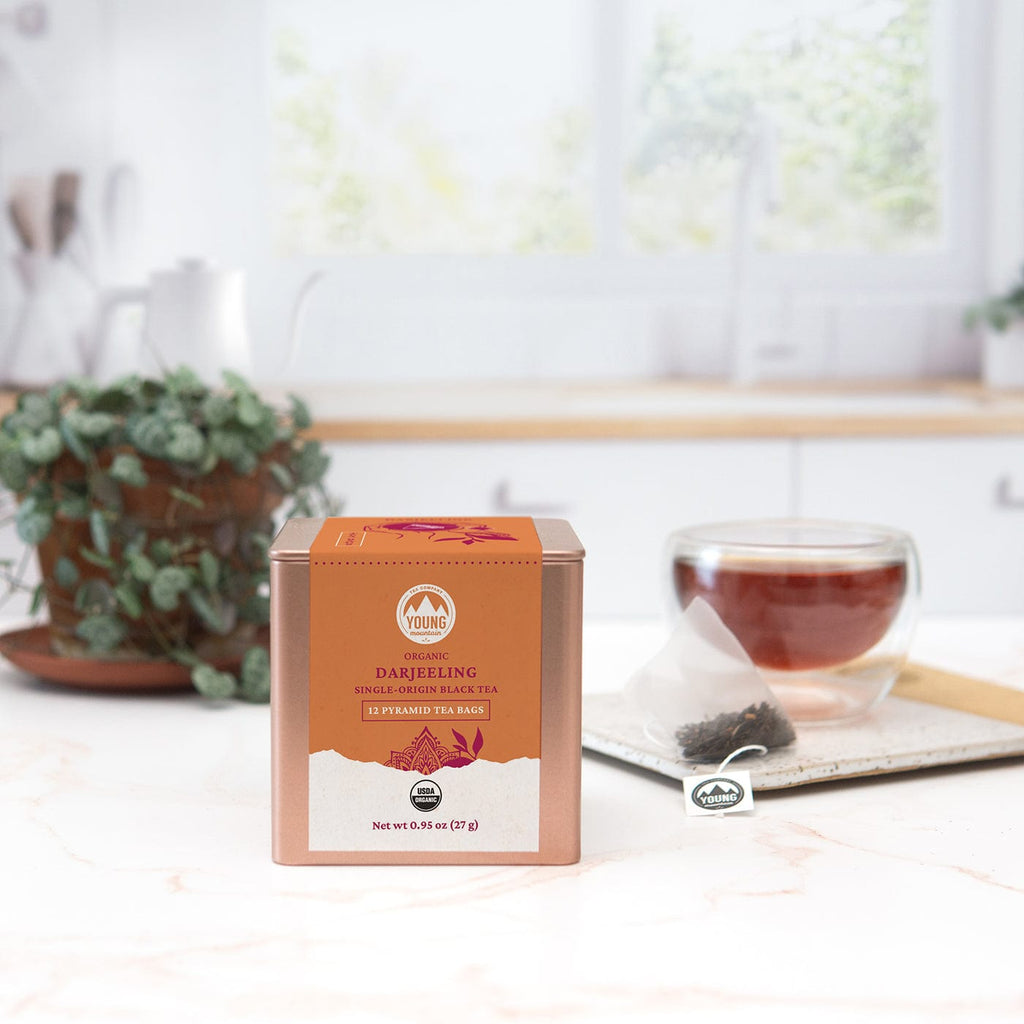
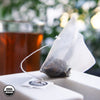
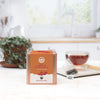
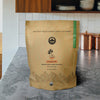
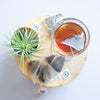
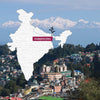
$15.99
Grown in Mt. Everest’s shadow, this fruity black tea is the best of Darjeeling—the world’s most iconic tea region. While its juicy body holds the traditional muscat-grape flavor that made the region famous, the story behind this Darjeeling is anything but. Organic Darjeeling is created by a rare partnership between a farmer group and an established estate working together to create sustainable livelihoods for Indian farming communities.This tea is also available in loose-leaf as Darjeeling Autumnal.
Taste: Condensed milk & mandarin orange
Origin: Darjeeling, Northeastern Indian Himalayas
Tea Maker: Subarna Small Farmers Society & Samabeong Tea Estate
Infusion Suggestions:
Steep 1 8 oz | 212° F | 3.5 min
Steep 2 8 oz | 212° F | 5 min
Certifications: USDA Organic
Contains Caffeine
Taste: Given the heft of this aromatic black tea, its lack of astringency is a pleasing surprise. Its medium-heavy body has the creamy quality of condensed milk, and a fruity tartness similar to a cappuccino, yet, the tartness never becomes acidic. The tea ends with a clean, citrus finish, reminiscent of mandarin oranges.
Production: This tea is made in the fourth and final window of Darjeeling’s annual tea season. Harvested in October after the monsoons and before the tea leaves go to sleep for the year, the late-season tea bush yields mature leaves that have a strength and depth not found in the spring-made Darjeeling First Flush or summer-made Second Flush. To bring out that strength, tea makers at Samabeong Tea Estate give this black a longer oxidation than most other Darjeeling teas, resulting in a juicy, satisfying cup.
Region: India’s iconic Darjeeling region is a confluence of culture and ecology. Running along Nepal’s eastern border, this mountainous region’s sharp ascent from the plains of West Bengal into the towering Himalayas creates the ideal conditions for the tea plant, Camellia sinensis, to flourish. As rain clouds heavy with water from the Bay of Bengal collide into the mountains, the tea bushes receive intense bursts of rainfall followed by strong, unfiltered sunlight. These heavy rains are actually what gives the region its name; “Darjeeling” means “Land of the Rolling Thunder” in Tibetan.
Tea Makers: Organic Darjeeling is created through a partnership between a group of tea farmers named Subarna and an established tea estate named Samabeong. The Subarna farmers plucked their tea bushes and sell their harvest to Samabeong for processing into finished tea. The collaboration began in the 1990s, when the farmers at Subarana decided to try their hand at tea. Initially, they got guidance from the owners of Samabeong on how to transition their farmland from ginger and cardamom to tea bushes. A few years later, once the tea bushes were mature enough to be harvested, Samabeong began purchasing the harvest. Today, the two partners continue to create teas together and find ways to elevate their work, tea and beyond. From intercropping tea with other native species, to vocational training workshops, infrastructure development, and health sanitation projects, this partnership is changing the norms of India’s most prized tea region.
Impact: The partnership between Subarna and Samabeong is a rare example in Darjeeling of independent farmers and established estates working together. Most Darjeeling tea is grown on privately-owned estates, and historically, independent Darjeeling farmers have been kept out of the tea trade. This new approach represents an important step towards a more equitable and inclusive future for Darjeeling.
Packaging: Our commitment to sustainability means we offer our teas in several types of packaging: